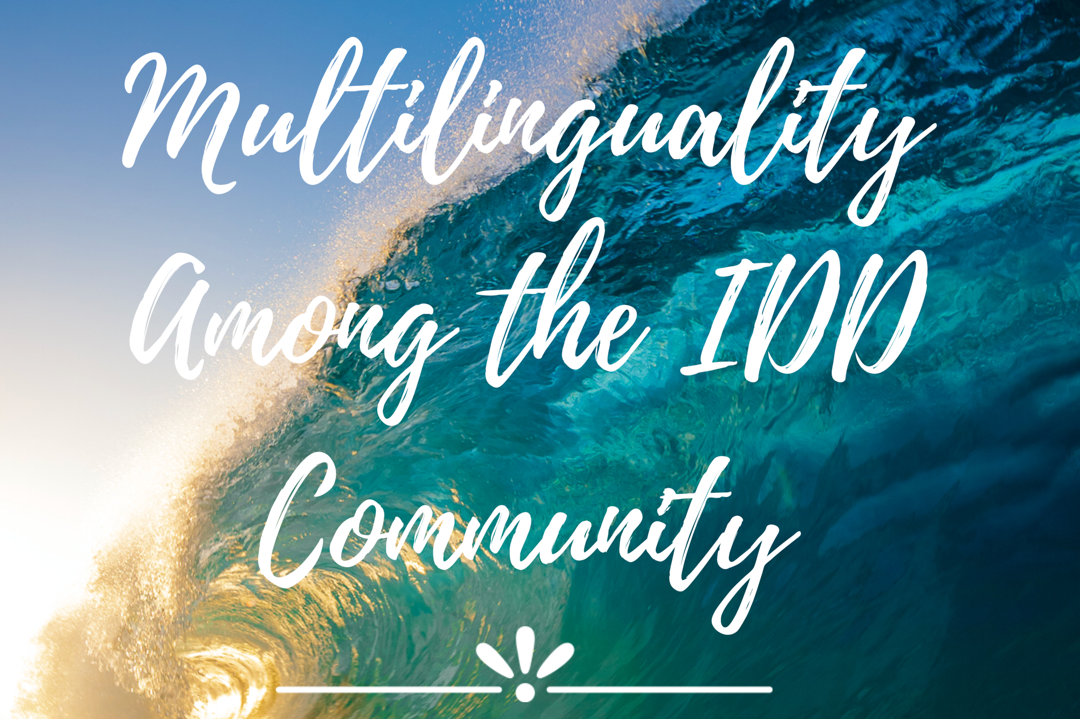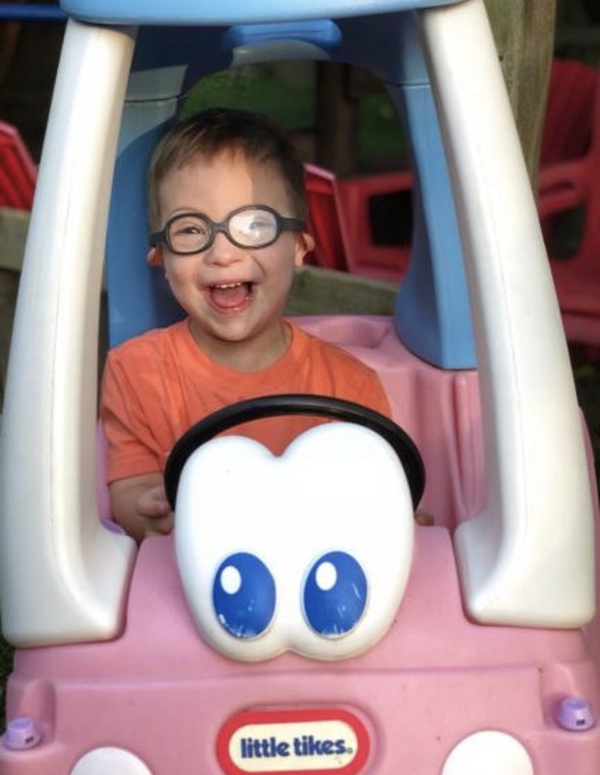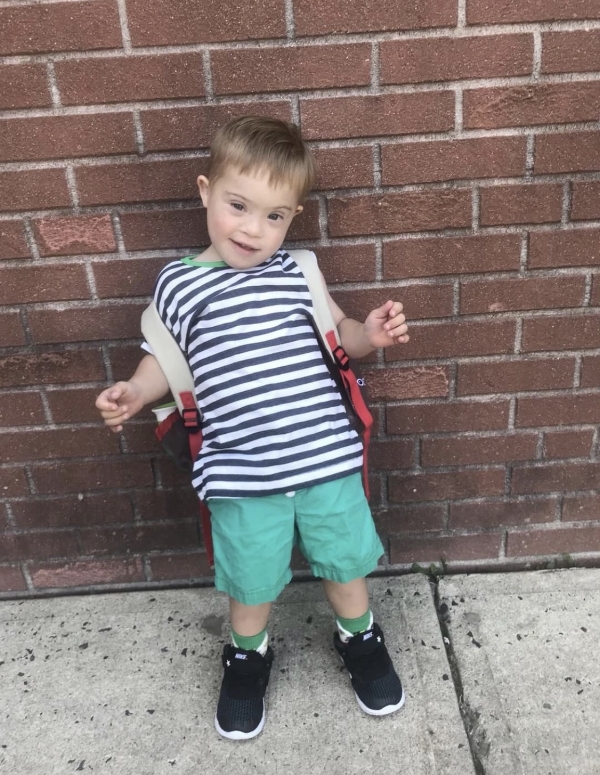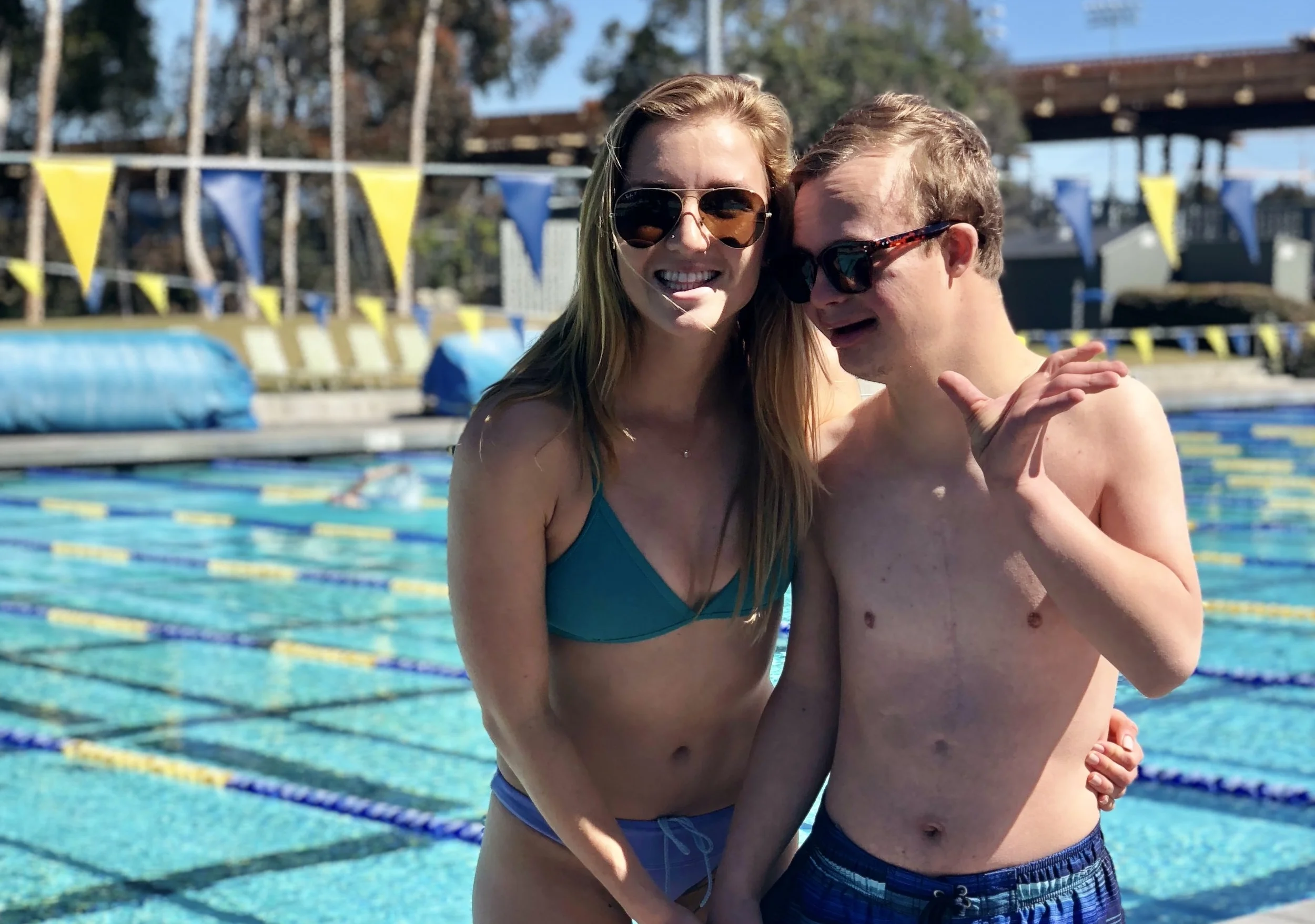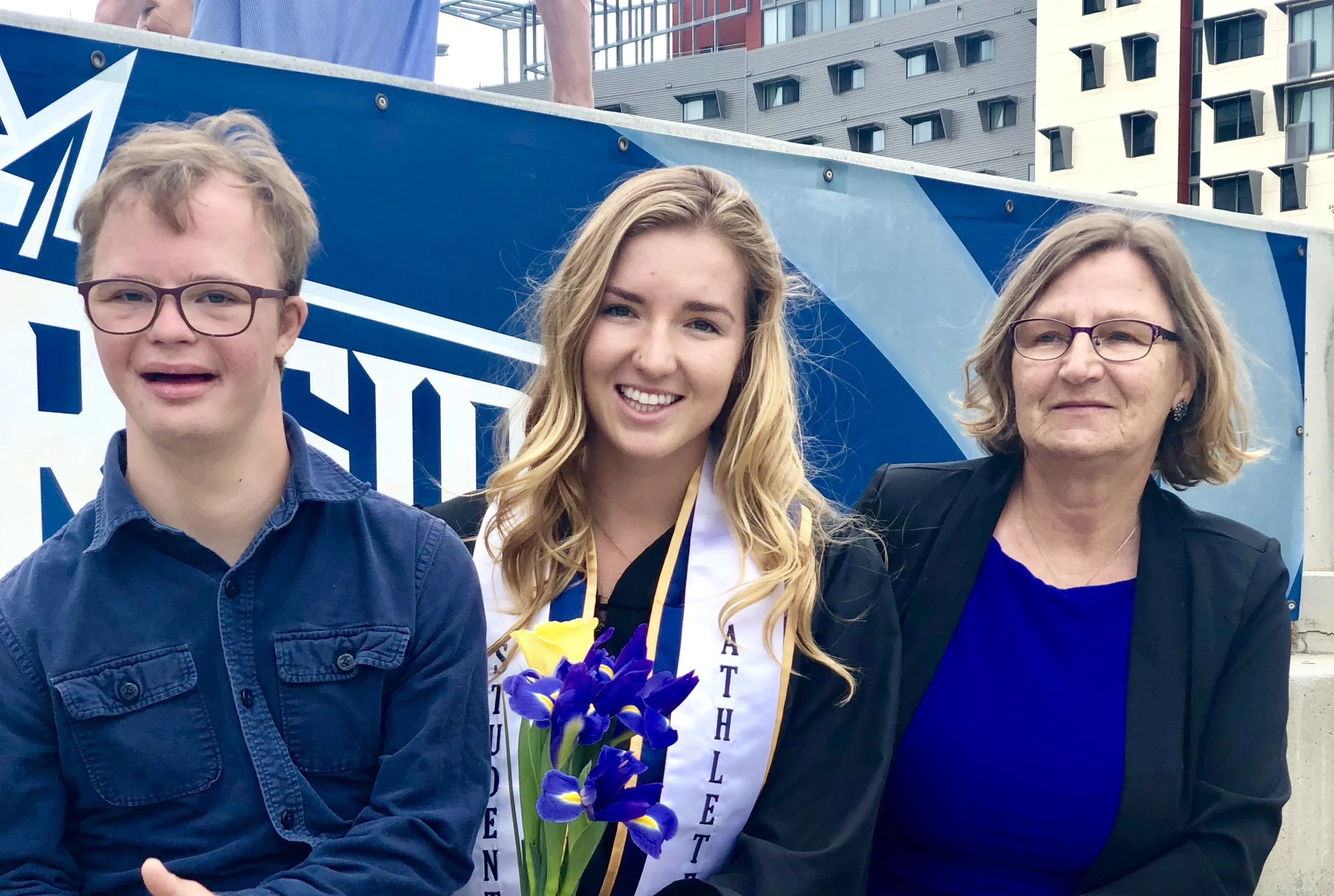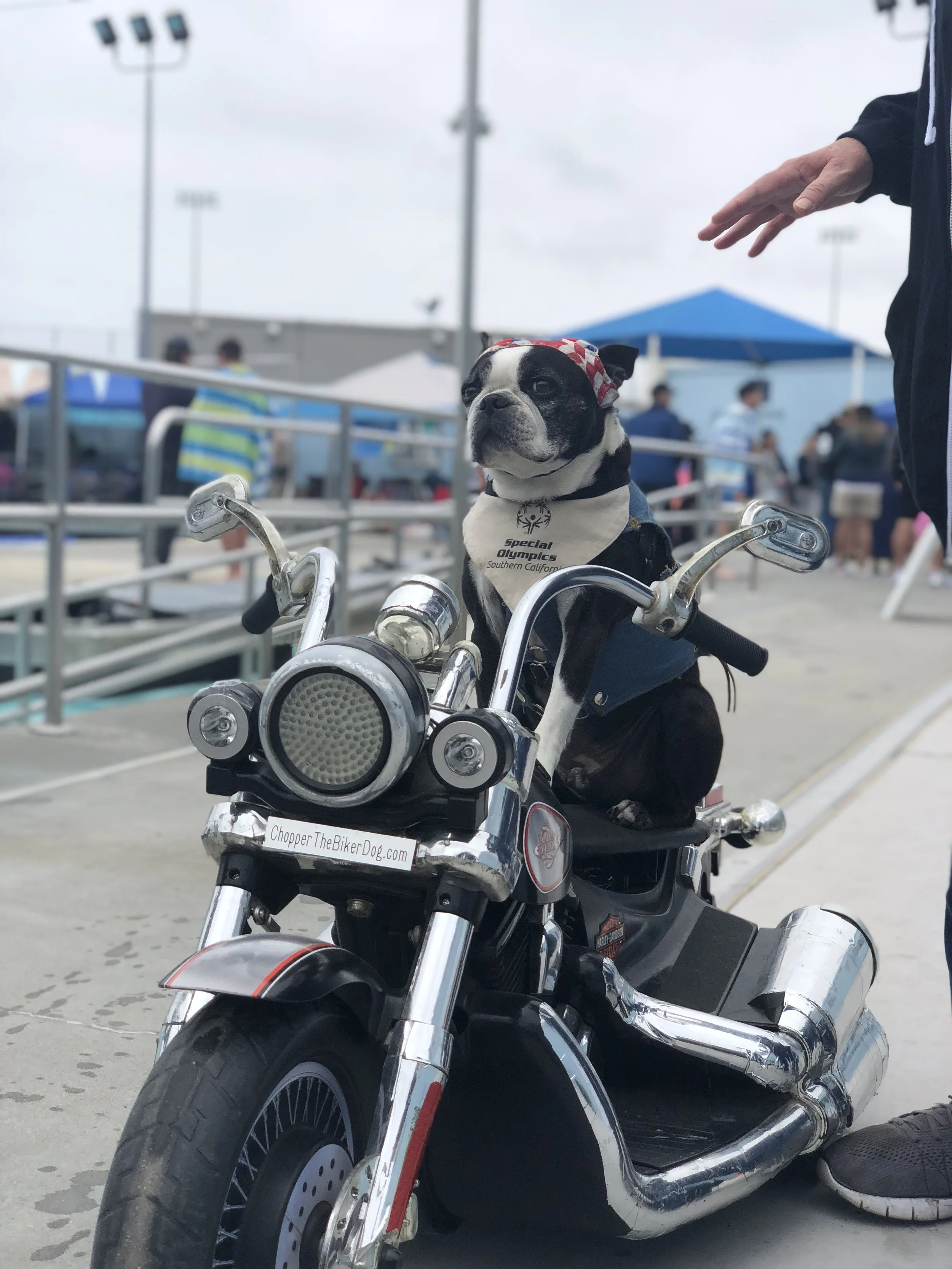Hello!
For this week's post I'll be doing a follow up from last week regarding bilinguality among members in our community. Believe it or not, many of those with IDD (intellectual or developmental disability) can speak or understand multiple languages!
I asked our community if their loved one is also bilingual, and got so many lovely responses! And what's even more incredible, is that some of these individuals can even understand up to four different languages!
It's so inspiring to see other individuals with IDD proving that they're capable of anything. Especially after learning that about 40% of the world population is monolingual! (1)
Rather they allowing their "disabilities" to hinder them, these individuals instead motivate themselves to accomplish anything they set their mind to.
You can find the responses from around our community below!
Desi
Fluent: English and ASL, with some dabbles in Spanish and Korean
Hannah has been so proud of her sister Desi, and reveals:
"I can't explain the absolute joy and pride it brings me when I get to speak about her accomplishments. When we got her 2 years ago she had no verbal, visual, or body language of any type. She did not even know when to cry. Now today she is so extremely expressive, and with that comes sass beyond compare, but it's all a cherished milestone!"
Ian
Fluent in: English and Spanish, currently learning ASL
Ian's mom, Nancy, shares her thoughts regarding her 3 year old son's ability to grasp other languages:
"My husband is a Spanish teacher and has always loved languages. When we started a family, we agreed he would speak to our children exclusively in Spanish. I'll never forget the first time I realized our oldest could understand directives in both languages, around a year old. When we had Ian and he was diagnosed with Down syndrome, I remember we both shared the same fears about what the diagnosis would mean for his life, and chief among those was the concern that Lucas would not be able to continue his Spanish with the kids.
We asked our geneticist about this and he loved the question and dug into it for us. Unfortunately, he found there were no studies regarding the success of dual languages in kids with Down syndrome. He encouraged us to go for it: dual language for typically developed kids only provides benefits, why not for Ian?
I'll never forget when I realized Ian understood directives in both languages, around a year old! And as his verbal expression emerges, it is mirroring his sister's--he chooses to use Spanish words when it is easier or more familiar."
Kevin
Fluent in: English and Spanish, some sign language
His older sister, Karina, shares her perspective regarding his communication ability:
"My little brother Kevin was raised in a bilingual household so he understood both English and Spanish. Because he had trouble expressing himself sometimes verbally he also learned to use some sign language. Therefore, not only would he use English and Spanish words interchangeably but also incorporated signing.
He never ceased to amaze me, such an intelligent individual. He knew to speak to my parents in Spanish and to his siblings and at school in English. Despite some of his limitations with expressive language, he was very well aware of body language and being able to pick up the emotions of how someone was feeling."
Yoel
Fluent in: Spanish and English, learning ASL
His mother, Michelle, shares with me how she's continually inspired by him:
"I am the mom to an awesome boy who has Ds and who also knows two languages, okay, THREE. He is able to talk both in Spanish, English, and also knows some ASL. I think he’s consider a trilingual. That’s Pretty amazing 🙌🏼"
Andres
Fluent in: English and Spanish
"My brother Andres has DS and is non verbal but he understands both English and Spanish perfectly well. Spanish was his first language. He learned English when he was around 7 or 8, when my family moved to the US. He was primarily spoken to in English at school.
At home we mostly speak to our parents in Spanish, so by default, also to Andres. Even if my siblings are speaking in English to each other, we revert to Spanish to speak to him. Which is silly since he understands both, but we can’t help it!
He loves watching Spanish novelas and fútbol on Univision, his favorite channel (he doesn’t like any other Spanish network), but also loves the original Hulk tv series and anything Whitney Houston (we’ve seen the Bodyguard over 1000 times and listens to her greatest hits album on loop for years 😂).
When we first moved to the US, my mom was advised to stick to only English with Andres, since he is non verbal, but also on the lower functioning end of the DS spectrum. My mom was adamant on him understanding Spanish, since at the time it was her primarily language. It was the only way he would be able to communicate with our family back home, so she stuck with speaking to him in Spanish at home. His English was reinforced at school, therapy and education tv programs.
Many people who first meet Andres are very surprised to learn he understands both languages, especially since he doesn’t speak. When they first meet him and see that we speak to him in Spanish, they assume right away they need to do the same. We tell them to speak to him in whatever language is easiest for them. He will accommodate to them 😉.
Something interesting to note- if we trying to get his attention and Andres refuses to cooperate after a few attempts, all we simply to do is repeat it English and he automatically listens! We think it’s because he associates english with school, a stricter environment than at home. It’s crazy, but once we start to speak in English to him, he knows we mean business 😂😂!
Jaime
Fluent: English, Spanish, Gallego, ASL
His mother proudly shares:
"Jaime “DeeDee” is 3 years old, and knows English, Spanish, Gallego (a language spoken in Galicia/North-Western Spain) And basic ASL. At first I was nervous that it would be to much for him. Learning 1 language is hard; now throw in a few more and top it off with an intellectual disability. To no surprise he has shown he is capable. I’m proud he’s able to experience our culture and be included."
Tori
Fluent in: English and Spanish
Her sister, Kelli, proudly shares:
"So my mom is Hispanic and we grew up with her only speaking Spanish to us, but we also understood English. So that was a cool thing, going to the grocery store and my mom asking Tori something in Spanish and her responding in English! I love it because it shows how extraordinary tori is. So many “normal” people struggle to learn languages and my sister with a “disability” seamlessly flows from English to Spanish."
Elena
Fluent in: Polish, English
Elena's mom, Olga, proudly voices her thoughts regarding Elena's abilities:
"I am bilingual (my mother tongue is Polish) and I always planned on speaking to my children in Polish. We learned about Elena’s diagnosis after she was born, and due to all the limitations the doctors made me aware of, I was hesitant to speak to her in Polish.
Despite everything, I persisted and spoke Polish to Elena. Although she is not speaking yet, she understands both Polish and English and responds back to us using sign language. She has a wide range of vocabulary ( Polish and English) and swiftly shifts from one language to the next.
My daughter has taught me to never underestimate her abilities. She is clever and able to learn multiple languages. Currently she is attending a french daycare."
*Citations
(1) http://ilanguages.org/bilingual.php


